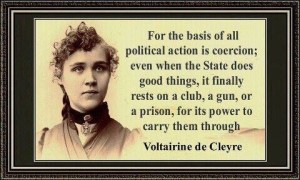A Simple Question

Why?
You can’t stop people from getting high. It’s NOT POSSIBLE.
It literally does not matter how far you go, you cannot stop it.
We can’t stop heroin from getting into supermax prisons, where there are no visitors allowed, and everyone is body searched in and out.
I just had a dedicated drug warrior fully sincerely advocate that we completely seal the border, and that every vehicle, container, and person should be fully cavity searched.
When I pointed out that cavity searches didn’t stop heroin from getting in to supermax prisons, he said that we need to have full walls on all the borders, and boats to patrol the coastlines to stop smugglers.
You can’t stop people from getting high. This is not an issue of sealing the borders.
Even if you actually sealed the borders successfully, then they would just grow it here.
How exactly would you stop that?
It would require constantly patrolling millions of acres of property, both public and private; searching all greenhouses, and all forests, and all fields of any kind, at least once every 90 days… in the entire country.
Doing so… aside from the massive violations of peoples rights, would require millions of law enforcement officers dedicated to it.
That would cost more than the entire budget of the United State by the way.
Even if you manage to completely eradicate all opium poppies, and all coca plants on the planet, they will just synthesize it in labs… and by labs, I mean, any quiet room with an electrical outlet, or anywhere you can run a generator, or a blow torch.
If you completely ban all substances that people could get high with, you ban thousands of legal products with legitimate and critical uses, including a huge number of critical medications.
You also have to ban all lab equipment, or closely license and track its sale. And all chemicals of all kind… and many kinds of foods. And most kinds of flowers.
And all machine tools, and glass blowing equipment… and blow torches, and pipes and tubes and sand…
And you’ll have to dig out and burn out millions and millions of acres of plants.
We have 7,500 miles of border. We have 13,000 miles of coastline.
You can make it a death penalty offense to posses, sell, or use drugs, or get high. Many countries do in fact… and people still get high.
This dedicated drug warrior said that it didn’t matter what it took, it didn’t matter what it cost… It didn’t matter if it wouldn’t work at all… That we had to do it anyway.
When I asked why, he said:
“Because to do otherwise would be to surrender”
Then I asked “Surrender what? To who?”
He said “Surrender to the junkies and the dealers”
I asked “Surrender what?”
He refused to answer.
And again I asked “Why”
He refused to answer.
I said “You’re advocating a police state, in order to stop people from getting high. Why?”
He refused to answer.
So… I have a very simple question for you…
You cannot possibly stop people who want to get high, from getting high.
You can’t make it illegal enough. You can’t ban or control enough. It’s not possible… you have to know that it isn’t possible..
Prohibition PROVED beyond all possibility of doubt that it’s impossible.
The last 45 years of the “War on Drugs” have proved beyond all possibility of doubt that it’s impossible.
Maximum security prisons prove beyond all possibility of doubt that it’s impossible.
But you still think we have to do it… No matter what it takes… No matter the harm it causes… No matter what rights get violated…No matter how much power it gives the state. No matter how much it costs…
Why?
It’s a really simple question…



